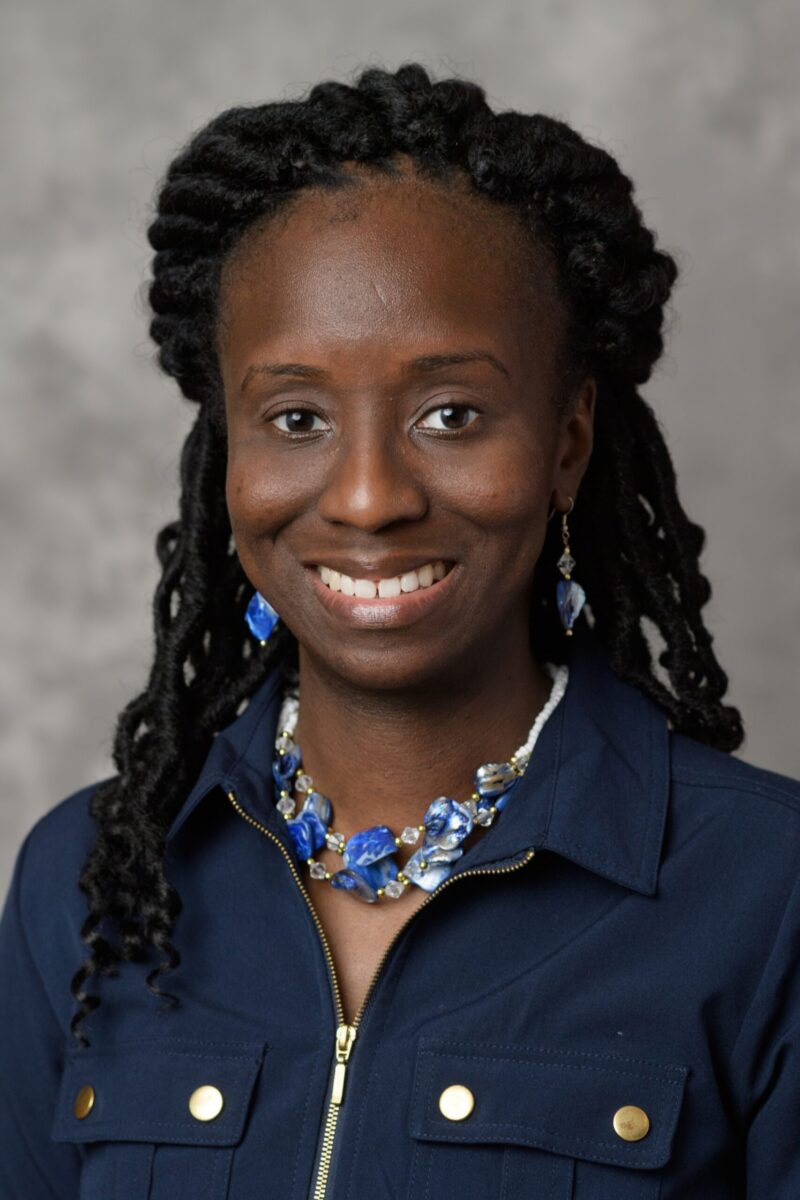Purdue Nutrition Science researcher reflects on diversity challenges in her field

Marie Allsopp
Written by: Tim Brouk, tbrouk@purdue.edu
In 2023, Marie Allsop, Purdue University Department of Nutrition Science clinical assistant professor, completed her two-year term as the first Academy of Nutrition and Dietetics Foundation diversity fellow.
Among Allsopp’s fellowship duties was a research project that would advance her field. Allsopp recently presented the results of her work, which focused on diversity issues in nutrition and dietetics in the workforce and in academia. “Prioritizing Diversity and Inclusion in Nutrition and Dietetics: Overcoming Obstacles to RDN Recruitment, Education and Advancement” fellowship explains the difficulties students of color face and registered dietitian nutritionists (RDNs) of color encounter to gain jobs and promotions. Some of the main issues are lack of mentors and examples of success for people of color to look to in the field of nutrition and dietetics. Allsopp also published about her fellowship experience in the Journal of Critical Dietetics this spring.
“A lack of cultural awareness and racism were found to be significant barriers,” Allsopp said.
The lack of representation in the field is not an overnight fix, but Allsopp’s work and dedication toward more diversity and inclusion in her field is an ongoing career goal, even post fellowship.
What barriers do students of diverse backgrounds and cultures face in becoming RDNs?
Some of the main barriers I found during the fellowship were lack of mentors and (few) other practitioners of color. There was also lack of representation of faculty members. Finances were also a big barrier. In the dietetics profession, internships are usually nonpaid, with a few exceptions like a military program and others that do offer compensation, but by and large, these nonpaid internships last 6-9 months. And since Jan. 1 of this year, in order to become a dietitian, you have to have a master’s degree, adding additional expenses for those who may not get assistance or some sort of scholarship to cover tuition.
What obstacles do registered dietitian nutritionists of diverse backgrounds and cultures have in advancing in the profession?
Based on some of the findings from literature and from conference presentations, it was things like microaggressions in the workplace and a general lack of representation.
There needed to be more written on this issue, so I started working on a survey that would go out to practitioners to look at what barriers they were facing in advancing their careers, be it practitioners or academics.
What solutions are there for these academics and professionals?
Mentoring. Having more mentoring support for students, for practitioners early in their careers. Also, recruitment programs to create a pipeline not just for high schools but earlier on in middle schools or even elementary schools. Also increase training for being culturally aware and for cultural sensitivities.
I also recommended that the Academy (of Nutrition and Dietetics Foundation) and the profession at large should be more actively involved in PR, marketing and outreach to diverse students about the roles RDNs have. Since then, one group within the Academy, NDEP (Nutrition and Dietetic Educators and Preceptors), has developed recruitment videos to go out into the community. The National Organization of Blacks in Dietetics and Nutrition also created videos to reach out to communities and promote the profession.
What other diversity issues are there in the field of nutrition?
There are gaps in other areas of diversity and more work that needs to be done in areas of gender identity and sexual orientation. The field tends to be a more female-dominated, heterosexual profession. Also, there needs to be more work on being more open and inclusive with regards to ability. People with disabilities need more representation and that was something that was lacking as the efforts of the fellowship to improve diversity were more focused on racial and ethnic diversity. We hope that the foundation will do work in those other areas of diversity.
How can Purdue’s Department of Nutrition Science improve its diversity?
We need to be more creative in increasing (enrollment of) students of color, diversity. People of diverse backgrounds in dietetics has been declining. But one great opportunity is the Purdue Indianapolis campus. We could reach out to more diverse populations and potentially diversify the faculty there.
Discover more from News | College of Health and Human Sciences
Subscribe to get the latest posts sent to your email.